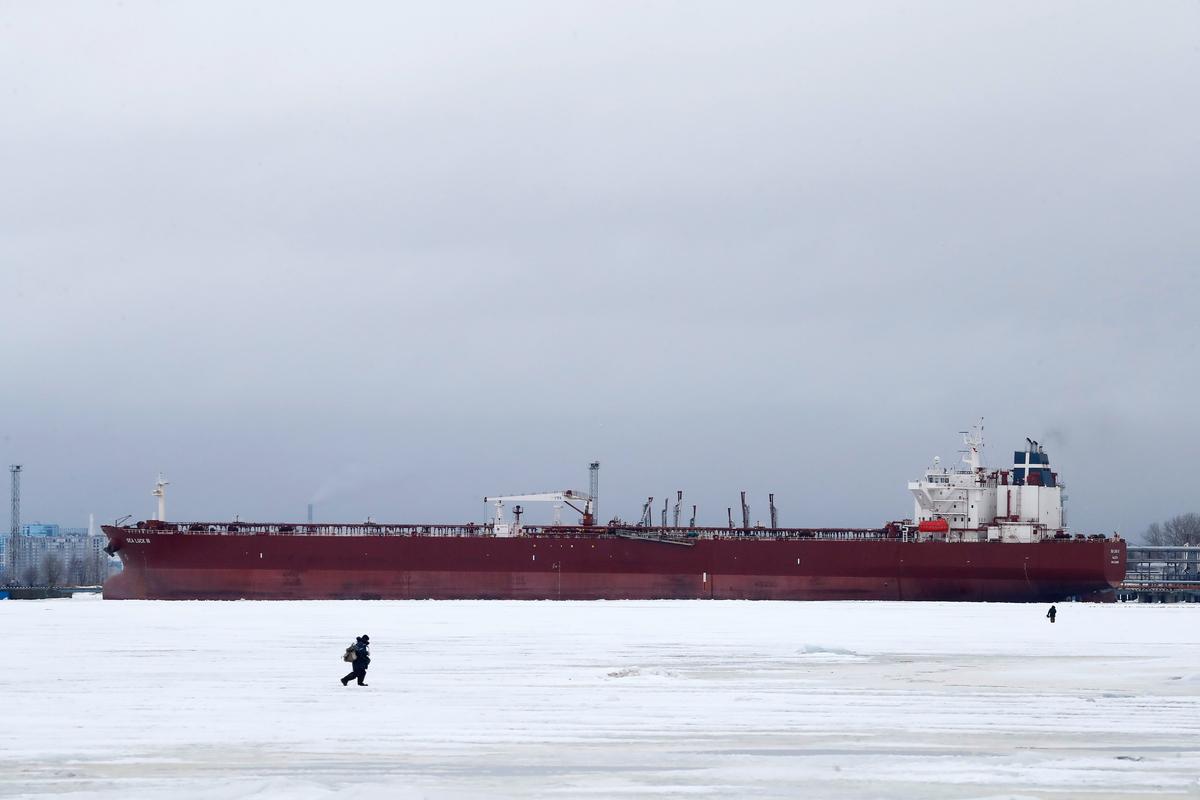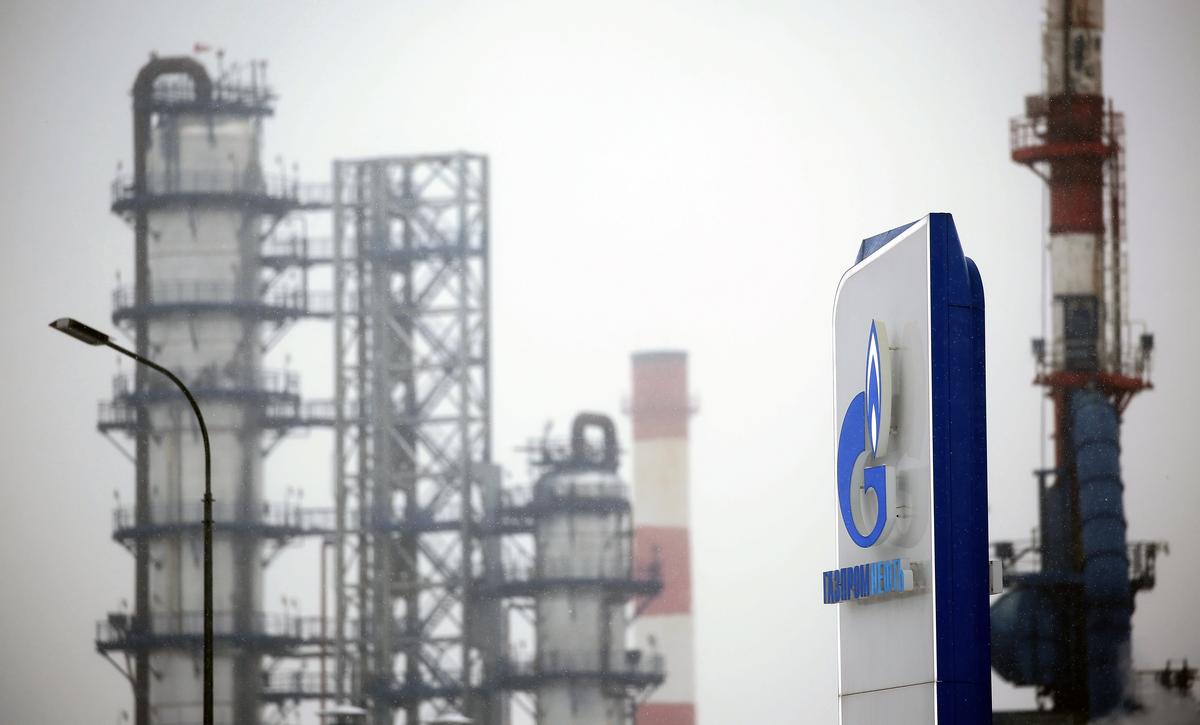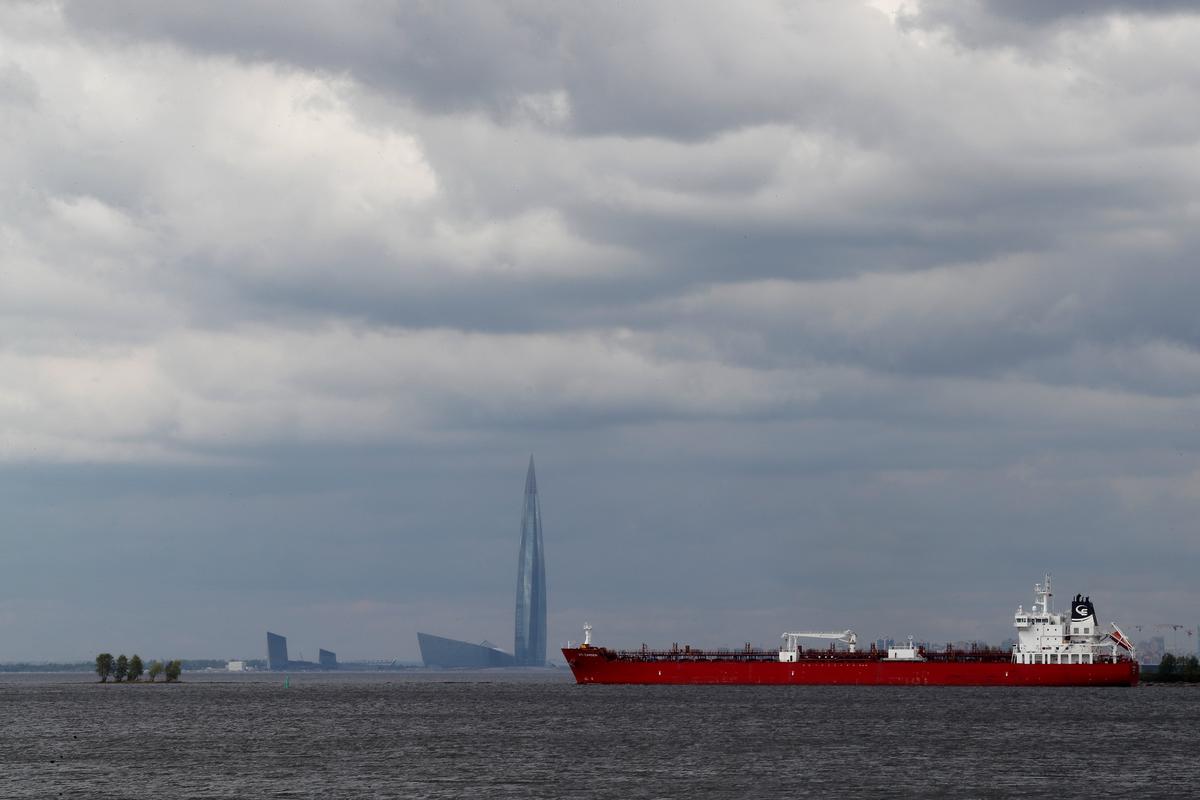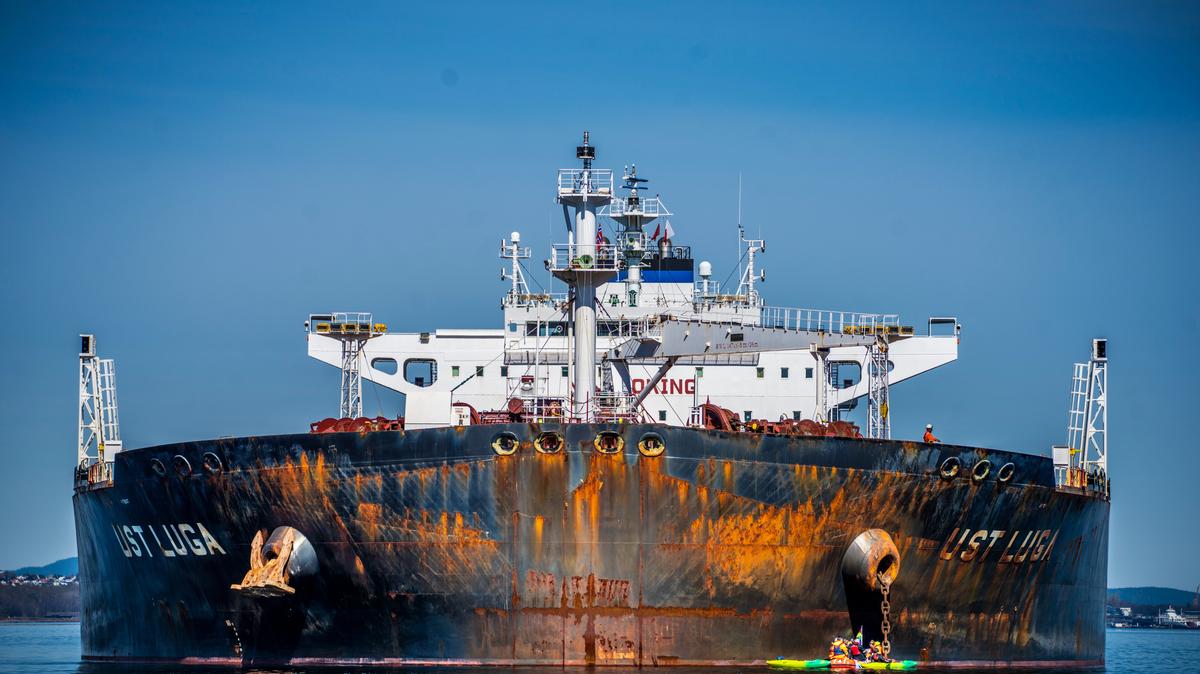Last month, the UK introduced new sanctions targeting the network of vessels used for exporting Russian oil to circumvent international restrictions, following similar measures to those already undertaken by the US. Yet, against all odds, Russia’s shadow fleet continues to operate with impunity. Why is it so difficult to stop?
On 25 November, the United Kingdom sanctioned 30 tankers from Russia’s shadow fleet, which it said had been collectively responsible for transporting oil and other petroleum products worth over €4 billion in the past year. The sanctions, which also targeted AlfaStrakhovanie and VSK, the companies used to insure the shadow fleet, make up the largest sanctions package to date aimed at curbing Russian oil revenues.
The sanctions limit the ships’ access to British ports, restrict their registration in British shipping registries, and block access to services related to the supply of Russian oil. Several of the tankers in question are now idling away their time in port.
“We are determined to ensure that both the ships and the enablers of those ships thwarting European and UK sanctions are hurt at this time,” UK Foreign Secretary David Lammy said.
Fleets of all kinds
According to data analysts Windward and Vortex, Russia’s entire fleet can be divided into three categories: cleared fleet, grey fleet and dark fleet. The cleared fleet is made up of tankers that observe sanctions and international trading regulations; the grey fleet comprises vessels operating with dubious legality, for example because they switch flags frequently, while the dark fleet is made up of vessels that are actively engaged in bypassing sanctions, using techniques such as tampering with IDs and falsified routes.
The term shadow fleet includes both the grey and the dark fleet. A shadow fleet refers to a group of tankers used to bypass international sanctions imposed on countries or companies exporting oil and petroleum products. These vessels are generally owned by anonymous entities registered in countries with convenient flags: Panama, Liberia, Malta, the Marshall Islands and Gabon.
The term first gained currency in the 2010s, when oil-rich Iran and Venezuela first resorted to shadow fleets to circumvent US sanctions. Iranian vessels would disable their transponders and frequently switch flags to confuse tracking efforts, while Venezuelan oil companies chartered dozens of tankers registered in jurisdictions with minimal regulatory oversight to ensure that the flow of petrodollars into their state coffers went unabated.

Fishermen walk across the ice in front of the oil tanker Sea Luck III, in St. Petersburg, Russia, 24 January 2024. Photo: EPA-EFE / ANATOLY MALTSEV
Moscow adopted the same methods after being sanctioned by the US, EU, and G7 over its invasion of Ukraine, but it was the imposition of a price cap of $60 per barrel on Russian oil transported by sea in December 2022 that prompted Russia to purchase old tankers to create the largest shadow fleet in the world. By March 2023, this fleet included approximately 600 vessels, growing at a rate of some 25–30 ships per month.
The methods used by Russia’s shadow fleet to bypass sanctions include disabling a vessel’s Automatic Identification System (AIS), which makes the vessel invisible to tracking systems; falsifying documentation certifying the origin of the oil being transported; so-called “flag-hopping” or the frequent changing of a ship’s flag to obscure the vessel’s country of registration; and the use of ship-to-ship transfers in open waters, to conceal the origin of oil being transported.
Market influencers
The Russian shadow fleet plays a crucial role in maintaining the country’s export potential amid international sanctions, but as well as generating significant revenue, and actively influencing the global oil market, it creates enormous environmental risks.
According to energy and freight market analysts Vortexa, approximately 30% of Russia’s current oil exports are conducted through the shadow fleet, or the equivalent to 1.4 million barrels of oil per day. In 2023, the shadow fleet alone generated over €5.6 billion in revenue for Russia. In October despite sanctions, Russia managed to export some 3.12 million barrels of oil daily.
As well as generating significant revenue, and actively influencing the global oil market, Russia’s shadow fleet creates enormous environmental risks.
Many vessels in the shadow fleet operate without adequate insurance, which in turn creates significant environmental risks, as cleanup responsibilities often fall to the affected nations rather than to an oil tanker’s operator. This has already been demonstrated by a series of oil spills tied to these tankers. A joint investigation by Politico and the public interest journalism nonprofit SourceMaterial has documented at least nine such incidents since 2021, taking place in Thailand, Vietnam, Italy and Mexico, as well as in busy maritime corridors such as the Red Sea and the Panama Canal.
In February, a 47-kilometre oil spill off the coast of Italy was detected that matched the route of the shadow tanker Aruna Gulcay, which was traveling from the Italian port of Ravenna to Novorossiysk in southern Russia under the flag of the Marshall Islands. While the vessel was suspected of discharging oil waste, the Italian authorities did not open an investigation.
Just a month later, a 23-kilometre oil slick appeared off the coast of Scotland, which was likely left by the tanker Innova, which had been transporting 1 million barrels of Russian oil from Murmansk to India. In this case too, the British coast guard did not open an investigation.
Despite such incidents, Sergey Vakulenko, an expert at the Carnegie Endowment for International Peace, takes exception to the portrayal of Russia’s shadow fleet as "old wrecks that should have been scrapped long ago”, and points out that the average age of the vessels purchased for the fleet is just 15 years, which doesn’t make them a high risk to the environment. In addition, the tankers are equipped with double hulls, which significantly reduce the likelihood of spills.

A petrol station next to a Gazprom petroleum refinery in Moscow. Photo: EPA-EFE/MAXIM SHIPENKOV
“I am not exactly thrilled about the emergence of a large oil tanker fleet operating in a parallel reality outside of established inspection and safety mechanisms, which has largely been facilitated by major, established insurance companies,” Vakulenko said, “But I strongly oppose the creation of false theories and false ideas that serve to justify arguments shaped by political necessity.”
Shadow boxing
Russia’s shadow fleet is continuing to operate effectively despite the fact that the US last year twice imposed sanctions on specific vessels and their owners involved in the transport of Russian oil at prices above the established price cap.
The EU is also working on a new sanctions package aimed at countering Russia’s shadow fleet with the fresh measures expected to be finalised by the end of the year and coming into force by February 2025. But so far, it has not proved possible to stop Russia circumventing sanctions completely.
This is largely due to the vessels being owned by anonymous shell companies registered in countries with minimal oversight. But another factor is the frequency with which these vessels deactivate their transponders or resort to so-called “spoofing”, or the use of data manipulation techniques, both of which effectively make their movements virtually impossible for international regulators to track. This also makes it far more difficult to prove the involvement of shadow fleet vessels in environmental violations such as oil spills.
Another factor that gives the shadow fleet such free rein is the UN Convention on the Law of the Sea, which guarantees any vessel the right of what’s known as “innocent passage” through a country’s territorial waters, which means that tankers don’t require permission to cross the territorial waters of a sovereign state if it’s not planning to call at one of its ports or otherwise compromise its security. This principle makes it difficult for national authorities to stop and board such vessels.
In addition, the generous profit margin of the oil trade offsets the risks associated with sanction busting for many. As a result, countries such as Turkey and India are reluctant to enforce strict measures against Russia’s shadow fleet, keen as they are to retain access to inexpensive oil imports and to avoid confrontation with Russia. For sanctions to be effective, Vakulenko says, it is crucial to involve as many countries as possible in their implementation, but resistance to joining sanction regimes on the part of many developing nations often undermines their success.

An oil tanker sails past the St. Petersburg headquarters of Russian energy giant Gazprom into the Gulf of Finland, 31 May 2022. Photo: EPA-EFE / ANATOLY MALTSEV
“What could be done to make it impossible to transport Russian oil, without using the services of insurance companies that work with states enforcing the price cap? And no one admits that they do this in order to enforce the price cap: this violates the principles of international law. At present they supposedly do this out of environmental concerns rather than as a way of restricting global trade,” Vakulenko added.
As Vakulenko says, the original intention was to establish a monopoly over the infrastructure and services related to oil transportation, including insurance. But such a monopoly turned out to be impossible, as it conflicts with the 1982 Convention on the Law of the Sea, which limits the rights of coastal states.
Countries such as Turkey and India are reluctant to enforce strict measures against Russia’s shadow fleet, keen as they are to retain access to inexpensive oil imports and to avoid confrontation with Russia.
While countries have the authority to inspect ship insurance and to deny passage, this undermines the international order. As Vakulenko sees it, this situation creates a dilemma: how can aggressive states be penalised without violating international standards? The effectiveness of such measures depends on the economic power of the countries implementing them, while their application may erode confidence in global norms.
In November 2023, the European Union discussed the possibility of assigning Denmark the task of inspecting and if necessary blocking Russian tankers passing through its waters without Western insurance. Specialists expected that this would facilitate enforcing the price cap on Russian oil. However, despite discussions, the initiative was not implemented. The Danish Maritime Authority immediately noted that coastal states had “extremely limited opportunities” to inspect vessels passing through their territorial waters.
“You’re seeing greater numbers of ships that have found ways to circumvent sanctions by operating outside Western jurisdiction,” Michelle Wiese Bockmann, chief analyst of the maritime data group Lloyd’s List Intelligence, told Reuters earlier this year. “The dark fleet has gone on steroids. And the deceptive shipping practices that they’re engaging in are getting more and more complex and sophisticated.”
Join us in rebuilding Novaya Gazeta Europe
The Russian government has banned independent media. We were forced to leave our country in order to keep doing our job, telling our readers about what is going on Russia, Ukraine and Europe.
We will continue fighting against warfare and dictatorship. We believe that freedom of speech is the most efficient antidote against tyranny. Support us financially to help us fight for peace and freedom.
By clicking the Support button, you agree to the processing of your personal data.
To cancel a regular donation, please write to [email protected]

